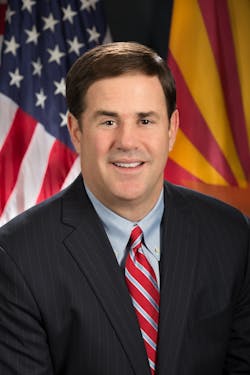Arizona Gov. Doug Ducey has signed a school voucher expansion bill that will extend eligibility to all 1.1 million schoolchildren in the state.
The program, called Empowerment Scholarship Accounts, will give Arizona one of broadest voucher programs in the nation.
“The quality of a child’s education should not be determined by what neighborhood their parents can afford to live in,” Ducey said in a statement on his web site. “Through Empowerment Scholarship Accounts, thousands of Arizona students have benefited from an education that’s customized to their unique needs and circumstances.
U.S. Education Secretary Betsy DeVos, a vocal supporter of school choice and voucher programs, lauded the legislation, calling it a "big win for students and parents in Arizona."
The Arizona program enables parents to take between 90 percent and 100 percent of the state money a local public school would receive for a student and use it to pay for private or religious education. A student who isn't disabled will get about $4,400 a year in aid, but some get much more.
Nevada has a similar choice plan applying to all students, but its funding mechanism was recently struck down by the state Supreme Court.
Opponents of the voucher program say its expansion will swamp Arizona's general fund and siphon cash from public schools, which already rank near the bottom in terms of state funding nationally.
Since the initial program was adopted in 2011, it has expanded to cover about a third of all students, including children attending failing schools, those living on Indian reservations, foster children and children of military members.
Despite those increases, the program has remained relatively small. Expanding it to all students would enable parents who now send their children to private schools to use the program.
About the Author
Mike Kennedy
Senior Editor
Mike Kennedy, senior editor, has written for AS&U on a wide range of educational issues since 1999.

